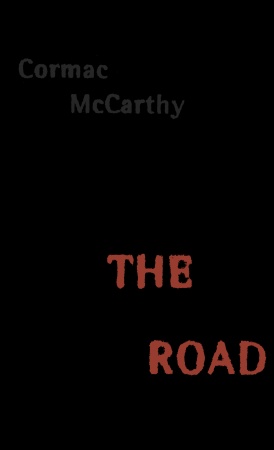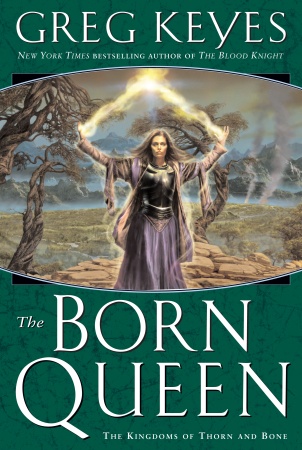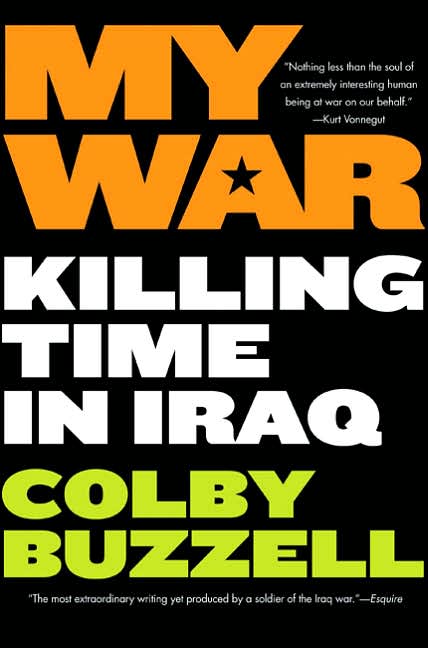Here are the nominations for the 2007
World Fantasy Awards. Some good stuff here and a much different pool of nominees than we see on the Hugo or Nebula ballots. Or, as I call it: yet another list of stuff to read.
NOVEL·
Lisey's Story, Stephen King (Scribner; Hodder & Stoughton)
·
The Privilege of the Sword, Ellen Kushner (Bantam Spectra; Small Beer Press)
·
The Lies of Locke Lamora, Scott Lynch (Gollancz; Bantam Spectra)
·
The Orphan's Tales: In the Night Garden, Catherynne M. Valente (Bantam Spectra)
·
Soldier of Sidon, Gene Wolfe (Tor)
I have only read
The Lies of Locke Lamora on this list and it is an outstanding work and worthy of a win no matter what company it is in. I know the Gene Wolfe is the third entry in the
Latro series. A co-worker of mine was raving about the
Latro novels, but he did acknowledge that Wolfe employs the unreliable narrator again much as he did in the
New Sun novels and that in reading a
Latro novel you must question what the narrator is telling you because the narrator may have his facts wrong due to his lack of a memory. That's a bit of a turn off and after
Shadow of the Torturer I have found the
New Sun novels to be fairly tedious. Which means I am unlikely to read
Soldier of Sidon or have an opinion on it. I may grab
Lisey's Story from the library after I finish reading
The Shining, but I feel good about it seeing that it picked up this nomination. I read the original story several years ago in one of the
McSweeney's anthologies but do not remember much about it. I've been enjoying King's work lately, so expect no different from him here. I have not read and have not heard anything about the Kushner or the Valente. Perhaps I should give those a go sometime soon. I almost read an earlier work by Valente. So...my early vote will go to Scott Lynch with a tentative withholding for how the Stephen King turns out.
NOVELLA· "Botch Town", Jeffrey Ford (
The Empire of Ice Cream, Golden Gryphon)
· "The Man Who Got Off the Ghost Train", Kim Newman (
The Man from the Diogenes Club, MonkeyBrain)
·
Dark Harvest, Norman Partridge (Cemetery Dance)
· "Map of Dreams", M. Rickert (
Map of Dreams, Golden Gryphon)
· "The Lineaments of Gratified Desire", Ysabeau S. Wilce (F&SF Jul 2006)
I read "Botch Town" as part of
The Empire of Ice Cream. I was not nearly as enamored of that work as other people were. Thinking back, I was confused as to exactly what the point was. I have not read the other Novella nominees, but I think it is great that Golden Gryphon has picked up a couple of nominees. They do good work over there and publish quality collections. I would not vote for the Ford, but otherwise no opinion here.
SHORT FICTION· "The Way He Does It", Jeffrey Ford (Electric Velocipede #10, Spr 2006)
· "Journey Into the Kingdom", M. Rickert (F&SF May 2006)
· "A Siege of Cranes", Benjamin Rosenbaum (Twenty Epics, All-Star Stories)
· "Another Word for Map is Faith", Christopher Rowe (F&SF Aug 2006)
· "Pol Pot's Beautiful Daughter (Fantasy)", Geoff Ryman (F&SF Oct/Nov 2006)
Another category for which I have only read one entry, that being "Pol Pot's Beautiful Daughter", by Geoff Ryman and like the Novella category, I did not think much of it. It was nominated for a Hugo for this same category and it may have been my lease favorite entry for the Hugos. What I found very interesting is that with the Hugo Awards most of the nominees were from Asimovs. Here we have three from Fantasy & Science Fiction with another in the novella category. Clearly this reflects the reading tastes of the folks in charge of nominations. Good on John Klima (editor of Electric Velocipede) for having one of the stories in his zine nominated. I have issue 11 sitting unread at my house, not #10, so I probably will not have the chance to get a read in for the Ford. Another interesting thing for me is that both Jeffrey Ford and M. Rickert have nominees in Novella and Short Fiction. Another glimpse into the taste of the nominators.
ANTHOLOGY·
Cross Plains Universe: Texans Celebrate Robert E. Howard, Scott A. Cupp & Joe R. Lansdale, eds. (MonkeyBrain and the Fandom Association of Central Texas)
·
Salon Fantastique, Ellen Datlow & Terry Windling, eds. (Thunder's Mouth)
·
Retro Pulp Tales, Joe R. Lansdale, ed. (Subterranean)
·
Twenty Epics, David Moles & Susan Marie Groppi, eds. (All-Star Stories)
·
Firebirds Rising, Sharyn November, ed. (Firebird)
Nope. Have not read a single one of these collections. The only one I really want to read is
Retro Pulp Tales edited by Lansdale. His fiction is sharp and filled with attitude. I can imagine what his eye for fiction is like.
COLLECTION·
The Ladies of Grace Adieu and other stories, Susanna Clarke (Bloomsbury)
·
The Empire of Ice Cream, Jeffrey Ford (Golden Gryphon)
·
American Morons, Glen Hirshberg (Earthling)
·
Red Spikes, Margo Lanagan (Allen & Unwin Australia; Knopf)
·
Map of Dreams, M. Rickert (Golden Gryphon)
Shocking! Jeffrey Ford and M. Rickert pick up nominations for their collections where the title story was nominated as novellas. I do hope to read the Rickert as well as the Susanna Clarke collections this summer / fall still. Was not terribly impressed by
The Empire of Ice Cream, though I know it was much lauded.
Things I appreciate from these nominees:
John Klima picked up a nomination for editing Electric Velocipede (Special Award, Non Professional); Golden Gryphon, Subterranean, and Electric Velocipede having work pick up nominees. I wish that more of Subterranean's fiction picked up nominations as Subterranean Online has some outstanding work published throughout the year.


















